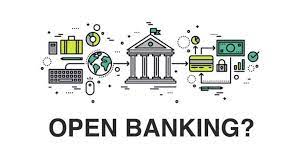In today's rapidly evolving business landscape, financial management has become more intricate and demanding. Companies seek innovative solutions to streamline expenses, monitor transactions, and optimize financial operations. A key player in this transformation is the emergence of customizable card programs, offering businesses unprecedented control over their financial management.
The Rise of Customizable Card Programs
The concept of customizable card programs is not entirely new, but its adoption and sophistication have escalated recently. Unlike traditional corporate credit cards, these programs allow businesses to tailor their financial tools to suit specific needs. This flexibility is vital in an era where each business faces unique challenges and opportunities.
Key Features and Benefits
The most striking feature of these card programs is the ability to set custom spending limits and restrictions. Businesses can allocate specific budgets to different departments or projects, ensuring funds are used as intended. Additionally, companies can restrict card usage to certain merchant categories, preventing unauthorized or non-essential expenditures.
Real-time expense tracking is another cornerstone of these programs. Traditional methods of expense reporting are often cumbersome and delayed. With real-time tracking, businesses gain immediate insights into spending patterns, aiding in swift decision-making and financial planning.
Moreover, the integration of these cards with accounting software streamlines the reconciliation process. It reduces administrative burden and enhances accuracy in financial reporting, a crucial aspect of corporate governance.
Case Studies
Consider a small marketing firm that adopted a customizable card program. Previously, the firm struggled with managing project-specific budgets and tracking employee expenses. With customizable cards, they set limits per project, ensuring no overspending. The real-time tracking feature provided a clear view of expenses, enhancing accountability and budget adherence.
Another example is a mid-sized manufacturing company. They used these cards to restrict purchases to approved vendors, significantly reducing unauthorized spending and improving supply chain efficiency.
Expert Opinions
Financial analysts highlight these programs' role in fostering a culture of financial discipline and accountability. They emphasize the need for businesses to adapt to modern financial management tools to stay competitive and efficient.
Customizable card programs represent a significant leap forward in corporate financial management. They offer a blend of flexibility, control, and efficiency, addressing the dynamic needs of modern businesses. As companies continue to navigate complex financial landscapes, these programs stand out as essential tools in their financial arsenals, signaling a new era in business finance.












 (+1) 236-239-5677
(+1) 236-239-5677



